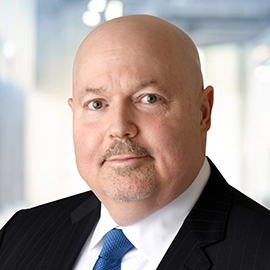
Successful first-time CFOs must defy experience bias

Obtaining a first CFO role is a challenging career ambition. Conventional wisdom says you need prior CFO experience. We believe that success as a first time CFO depends on how you leverage people, data, and strategy from day one.
A first-time CFO is a mold-breaking hire that can challenge risk-averse boards; winning over the Board during the interview process is only the beginning. Your success when stepping into a CFO role for the first time will depend on your adaptability, credibility, and strategic alignment with the company’s CEO and Board.
First time CFOs: Priorities for the first 90 days
- Create cross functional relationships at your new company from Day 1. Collaboration is key.
- Build the right team quickly.
- Implement strong systems and processes early.
- Set standards through accounting policies.
- Define the business metrics that truly matter.
- Create a culture of excellence and best practices throughout the finance organization.
- Position the Finance function as a strategic owner of enterprise-wide data.
A first time CFO will face steep learning curves. You must be comfortable across a broad remit, display credible leadership, quickly earn the trust of senior colleagues, identify impactful changes, and set a long-term strategy.
None of this is easy on its own. Your long-term success may depend on early accomplishments, perceptions of you in the new role and how you work with your new colleagues, some who might have wanted or expected to get the CFO role. Harvard Business Review tells new executives that softer skills are just as important as technical abilities. Those who don’t succeed often fail because:
- They don’t read the political situation well enough to build necessary internal relationships and coalitions.
- They don’t achieve the cultural changes their strategic and operational agendas require.
- They overestimate the willingness or the capacity of the people they inherit to abandon old habits and behaviors.
Experience bias
First time CFO candidates are frequently overlooked because they are viewed as a risky hire. A first timer is often an internal candidate because they are perceived to be less risky appointments.
There are scenarios that can lead to a first time CFO appointment. Companies may face challenges in attracting sitting CFOs because of their current circumstances, budgetary restrictions or brand perception. Sometimes a Board and CEO will want the best/most impactful candidate, regardless of prior CFO experience. A first time CFO might not fit the Board’s and CEO’s preconceived views, yet could be hired if they have experience and skills the company needs:
- Companies with capital structure challenges benefit from a treasurer-turned-CFO
- Organizations facing accounting or compliance crises require an accounting leader
- Businesses focused on growth and scaling look for a background in financial planning, analysis and strategy.
Early Wins are More Important Than Perfection
Immediate actions and early wins are more important than waiting for perfection. Quick progress establishes credibility and readiness for the role. Identifying systems, talent gaps, and process inefficiencies early, and addressing them promptly, is crucial. Stakeholder mapping is helpful to prioritize relationships with colleagues in operations, legal, HR, IT and other key functions.
Human Insights + Digital, AI, and Data = Success
Technology fluency is critical for your success as a new CFO, though it requires human intelligence and input to work effectively and appropriately. Data without human input and interaction will not succeed.
Tech proficiency can include ERP systems, automating repetitive tasks such as invoice processing, and implementing AI applications for financial planning and analysis. While these are all data-heavy elements of the CFO’s remit, it should always relate to colleagues in your organization and how they interact with customers:
- Forecasting and scenario planning should be done in collaboration with HR to highlight the impact on staffing and hiring, and what that impact will be on customers
- Automating variance and anomaly analysis, which can help colleagues understand how they can minimize the unexpected in their divisions
- Identifying predictive insights such as demand shifts or cashflow shortfalls, using internal data that is directly influenced by customer-facing colleagues (sales, expenses) and external data (economic indicators)
- Assessing risk and compliance in partnership with other senior colleagues, through spending patterns or budget deviations, and stress testing
Board & CEO Alignment
As a new CFO, you should position yourself as a trusted co-pilot to the CEO, providing support while offering constructive challenges when appropriate. Presenting strategic insights alongside financial data will strengthen your credibility with the Board. Communication should emphasize business outcomes rather than numbers alone.
The Board will have hired you to complement the CEO. If the CEO is the visionary, the CFO should be a master of execution, Marjorie Lao, the former CFO of LEGO Group and Tandberg (now part of Cisco), told McKinsey & Co. That’s why the CFO should have operational experience, “covering more than just finance but driving the linkages across different departments,” Lao added.
[[divider]]
Pitfalls to Avoid
- Getting buried in reporting instead of thinking strategically
- Failing to delegate or restructure an outdated finance organization
- Overlooking communication as a core CFO skill
- Undervaluing technology modernization
How to Succeed
- Challenge experience bias by reframing your skill set as strategy-first
- Leverage AI + Human Insights to establish financial foresight from day one
- Win early by demonstrating precision at pace
[[divider]]
First-time CFOs face high expectations, but also a unique opportunity to shape the company’s future. Success stems from early credibility, data- and technology-driven leadership, and building strategic trust with the CEO, Board, and colleagues.
The most effective CFOs do more than manage numbers. They articulate the company’s story about where it’s come from and where it’s going.
The first-time CFO challenge is about proving you can do it better, with sharper data, stronger teams, and AI-enabled foresight. It's not about proving you’ve done it before. Overcoming the trap of experience bias is how a first-time CFO can succeed.
Meet the Author



